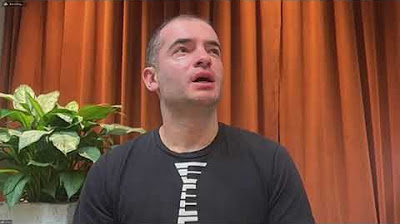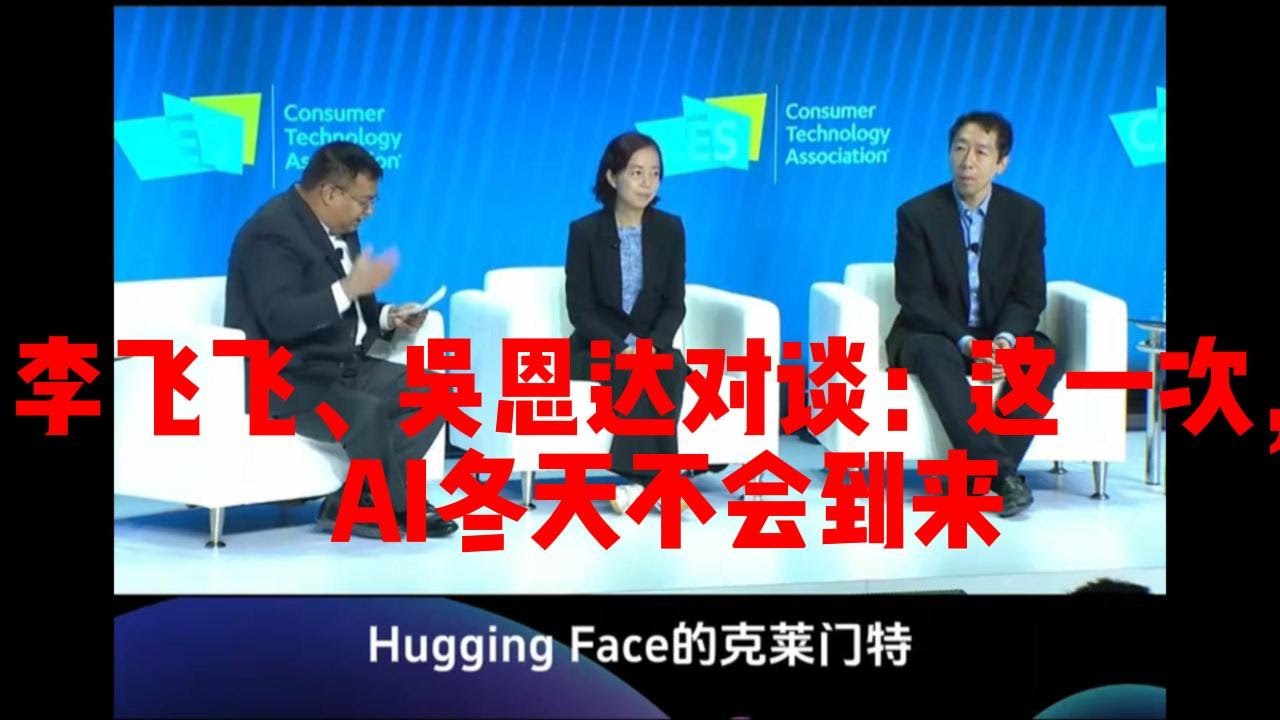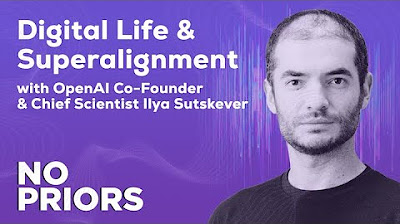The Possibilities of AI [Entire Talk] - Sam Altman (OpenAI)
Summary
TLDR在斯坦福大学举办的企业家思想领袖研讨会上,Sam Altman,OpenAI的联合创始人兼首席执行官,分享了他对于人工智能未来的深刻见解。Altman认为,我们正处于创业的最佳时期,AI的发展将带来前所未有的机遇。他强调了迭代部署的重要性,认为社会和技术的共同演化对于形成有益的产品至关重要。同时,他也提到了对于AI强大能力的负责任使用,以及对AI带来的潜在风险的担忧。Altman还讨论了OpenAI的组织结构和使命,以及他们如何适应不断变化的环境。最后,他以对AI未来进步的乐观态度结束了演讲,认为尽管存在挑战,但AI将为人类带来巨大的积极影响。
Takeaways
- 🎓 Sam Altman 是 OpenAI 的联合创始人和 CEO,该公司是聊天机器人 Dolly 和 Sora 背后的研究和部署公司。
- 🌟 Sam Altman 的生活是一个不断突破界限和超越可能性的模式,无论是对他自己还是对世界。
- 🚀 Sam 认为,鉴于世界的变化程度和影响力的机会,现在可能是几个世纪以来创业的最佳时机。
- 🤖 他预见到人工智能(AI)将每年变得更加卓越,并且最伟大和最具影响力的公司和产品将在这种时代诞生。
- 🧠 Sam 强调,对于想要创业的人来说,追随自己的直觉和非共识的想法是非常重要的。
- 💡 OpenAI 通过迭代部署其产品,让社会和技术共同演化,从而学习并变得更好。
- 🌐 Sam 讨论了 AI 对全球政治格局和权力平衡可能产生的影响,尽管这不是他主要关注的问题。
- 💰 关于 OpenAI 的经济模型,Sam 表示他不担心烧钱问题,只要最终为社会创造的价值远超过成本。
- 📈 Sam 认为,随着技术的发展,社会将需要适应新的形式,并且他担心社会适应新变化的速度。
- 🔍 他提到,尽管人们倾向于关注 AI 的灾难性风险,但更应该关注那些微妙的危险,因为这些往往被忽视。
- 🎉 最后,Sam 强调了 OpenAI 文化中的团队凝聚力和对实现 AGI(人工通用智能)这一共同使命的忠诚。
Q & A
Sam Altman 是如何描述他在斯坦福大学作为本科生时的感受的?
-Sam Altman 描述他在斯坦福大学作为本科生时的感受用了三个词:兴奋(excited)、乐观(optimistic)和好奇(curious)。
Sam Altman 认为现在是一个创业的好时机吗?
-是的,Sam Altman 认为现在可能是几百年来创业最好的时机,他认为世界正在发生巨大的变化,并且有机会去影响这个变化,无论是创立公司还是进行人工智能研究,都是非常好的机会。
Sam Altman 对于想要进入人工智能领域的斯坦福本科生有什么建议?
-Sam Altman 建议如果学生确定想要创业,那么最好的学习方式就是去实际运营一个初创公司。他认为,尽管加入一个现有的公司可以学习到很多东西,但直接创业可以让你更快地学习和成长。
Sam Altman 认为未来几年人工智能领域最大的挑战是什么?
-Sam Altman 没有具体说明他认为未来几年人工智能领域最大的挑战是什么,他建议听众不要从别人那里获取关于创业点子的建议,而应该自己去发现那些不明显的想法,并信任自己的直觉和思考过程。
Sam Altman 对于人工智能的未来发展有什么愿景?
-Sam Altman 认为未来几年我们将拥有比现在强大得多的系统,他放弃了尝试给出人工通用智能(AGI)的具体时间表,但强调每年都会有更加强大的系统出现。
Sam Altman 如何看待人工智能可能带来的危险?
-Sam Altman 更担心人工智能带来的微妙危险,而不是灾难性事件,因为灾难性危险已经得到了很多人的关注和讨论,而微妙的危险可能会被忽视。
Sam Altman 认为人工智能的未来发展对社会的影响会是怎样的?
-Sam Altman 认为即使有了比人类在许多领域都更聪明的人工智能,人类的日常生活可能不会有太大的不同,但是在某些方面,比如拥有丰富的智能工具,将会有很大的不同。
Sam Altman 对于人工智能在空间探索或殖民化中的作用有什么看法?
-Sam Altman 认为,由于太空对生物生命不太友好,发送机器人去探索或殖民可能更容易。
Sam Altman 如何评估创业想法是否具有非共识性?
-Sam Altman 认为,评估一个想法是否具有非共识性是复杂的,因为不同的群体对技术的看法不同。他认为,最重要的是相信自己的直觉和思考过程,并且随着时间的推移,这种能力会变得更加容易。
Sam Altman 对于未来能源需求的变化和如何实现可再生能源的普及有什么看法?
-Sam Altman 认为能源需求将会上升,并且他希望我们能够达到一个高标准,使得能源需求确实上升。他预测,最终可能是核聚变或者太阳能加储存成为地球上的主要电力来源。
Sam Altman 在离开然后又回到 OpenAI 的过程中学到了什么?
-Sam Altman 学到了团队的韧性和能力,他意识到即使没有他,团队也能够运营公司。此外,他也认识到自己对 OpenAI、团队、文化和使命的热爱,这促使他决定回来继续共同推进公司的发展。
Sam Altman 如何看待 OpenAI 的组织结构,特别是非营利组织拥有营利性公司的部分?
-Sam Altman 表示,OpenAI 的结构是随着时间的推移逐渐形成的,他们没有预见到会需要这么多资金用于计算,也没有预见到会有这么好的商业模式。他认为,尽管这个结构不是他们如果能够重新来过会做的选择,但他们在重要的事情上是正确的,并且他们将会继续根据需要调整结构。
Outlines

此内容仅限付费用户访问。 请升级后访问。
立即升级Mindmap

此内容仅限付费用户访问。 请升级后访问。
立即升级Keywords

此内容仅限付费用户访问。 请升级后访问。
立即升级Highlights

此内容仅限付费用户访问。 请升级后访问。
立即升级Transcripts

此内容仅限付费用户访问。 请升级后访问。
立即升级浏览更多相关视频

Ilya Sutskever: Deep Learning | Lex Fridman Podcast #94

Ilya Sutskever (OpenAI Chief Scientist) - Building AGI, Alignment, Spies, Microsoft, & Enlightenment

Interview with Dr. Ilya Sutskever, co-founder of OPEN AI - at the Open University studios - English

Inside OpenAI [Entire Talk]

2024年开年AI大牛世界论坛关于AI的三大访谈之一 李飞飞、吴恩达对谈:这一次,AI冬天不会到来2024 A Dialogue between Li Fei-Fei and Andrew Ng

No Priors Ep. 39 | With OpenAI Co-Founder & Chief Scientist Ilya Sutskever

6. Layers of Mental Activities
5.0 / 5 (0 votes)